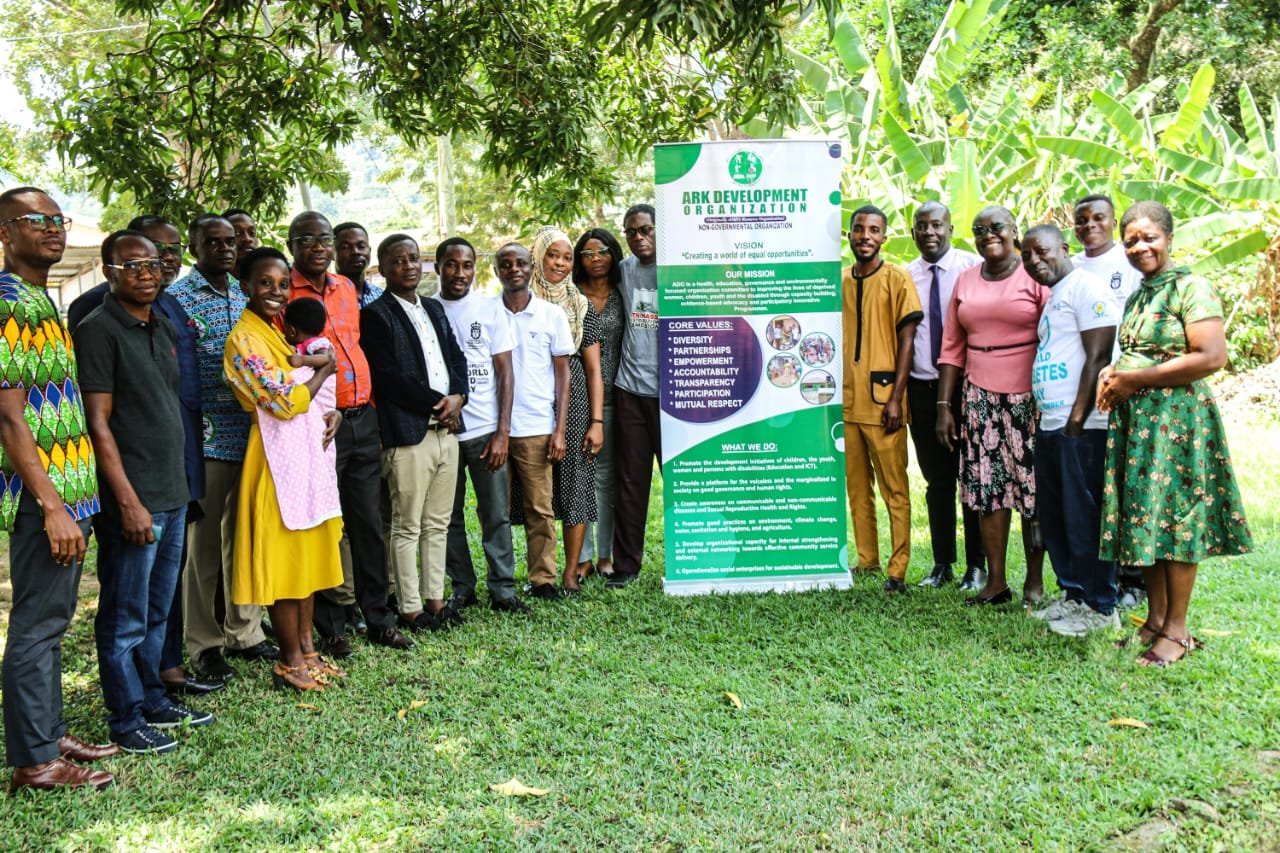Stakeholders implementing the “Partnership for the Eradication of Skin NTDs Project,” a two-year initiative by Ark Development Organization and Anesvad Foundation, have expressed concerns over the absence of a dermatologist at the Eastern Regional Hospital to manage skin diseases.
The project, which focuses on combating skin Neglected Tropical Diseases (NTDs) such as Buruli Ulcer, Leprosy, Yaws, and Lymphatic Filariasis in Upper Manya Krobo, Suhum, Fanteakwa North, and West Akim municipalities, has stressed the urgent need for specialized care.
As of 2022, Ghana had fewer than 40 certified dermatologists serving a population of over 32 million, with most dermatologists concentrated in teaching hospitals in Accra and Kumasi.
Many dermatologists have retired or are engaged in private practice in urban areas, leaving rural communities underserved.
Despite the Eastern Region’s population approaching 3 million, it remains without a dermatologist, a key medical specialty addressing skin, nail, hair disorders, and mucous membrane conditions.
Emmanuel Kwarfo Mintah, Executive Director of Ark Development Organization explained how the lack of dermatologists affects the fight against Skin NTDs in the region.
“Looking at the case detection of Buruli Ulcer, you have to get specialist dermatologist to help detect the case but it is very difficult to get them so we appeal to the national level to support the region to train more dermatologists to support skin NTDS eradication. At times too when we send samples to Noguchi for confirmation it takes a long time so we need a system that will help the fight against NTDs”
The Upper Manya Krobo District Health Director Esther Duah Oyinka lamented a situation where Doctors and Nurses refuse to post in the district.
“It is true not only of the dermatologist alone but also of healthcare in general. In my district for instance they used to post a lot of doctors there they would come and report. Director we are going to look for accommodation and by the time you realize they are back in the cities why because the place is deprived. So it cuts across not only dermatologists. It is because of the area, that they are deprived of social amenities even some of our nurses when they come to my office crying they want to be reposted out of my district”.
Skin diseases are a significant cause of morbidity particularly in sub-Saharan Africa. According to the World Health Organization (WHO), skin conditions affect an estimated 1.8 billion people globally at any given time.
Skin NTDs, such as those targeted by the project, account for around 10% of all skin diseases in many communities.
The stakeholders emphasized the need for a holistic, community-oriented approach to addressing skin NTDs to achieve universal health coverage, ensuring that no one is left behind.
They also called for increased investment in fighting NTDs to meet WHO 2030 roadmap targets, which include the eradication of yaws, the elimination of leprosy and onchocerciasis, and the control of other skin NTDs like Buruli ulcer and scabies.
Through the Partnership for the Eradication of Skin NTDs Project, a total of 1380 suspected cases of Buruli Ulcer, Leprosy, Yaws, and Lymphatic Filariasis have been identified through intensive screening and case search in the project districts.
As part of the project Nurses, family members, and volunteers have been trained to provide wound dressing and other medical interventions for the patients who faced serious stigma in the communities hence mostly locked up in rooms, herbal and spiritual centers.
The project has also provided some economic empowerment interventions to the affected individuals and provided access to clean water in some communities.
“Two (2) of the four (4) mechanized boreholes have been fully completed (Nyankomase and Akormersu Nyomnyom in the Upper Manya Krobo District). Meanwhile, the borehole at Kromameng is 80% completed while the one at Asarekwao in the Fanteakwa North district is 65% completed. The completion of this project will increase access to potable water for those living in these communities and around reducing the incidence of water-related diseases” David Kwaning, the project officer said.
Christian Fiador, Eastern Regional NTDs Coordinator commended the impact of the project in the region identifying and managing cases and providing interventions for clients and communities at large.
Source: Ghana/Starrfm.com.gh/103.5FM/Kojo Ansah




